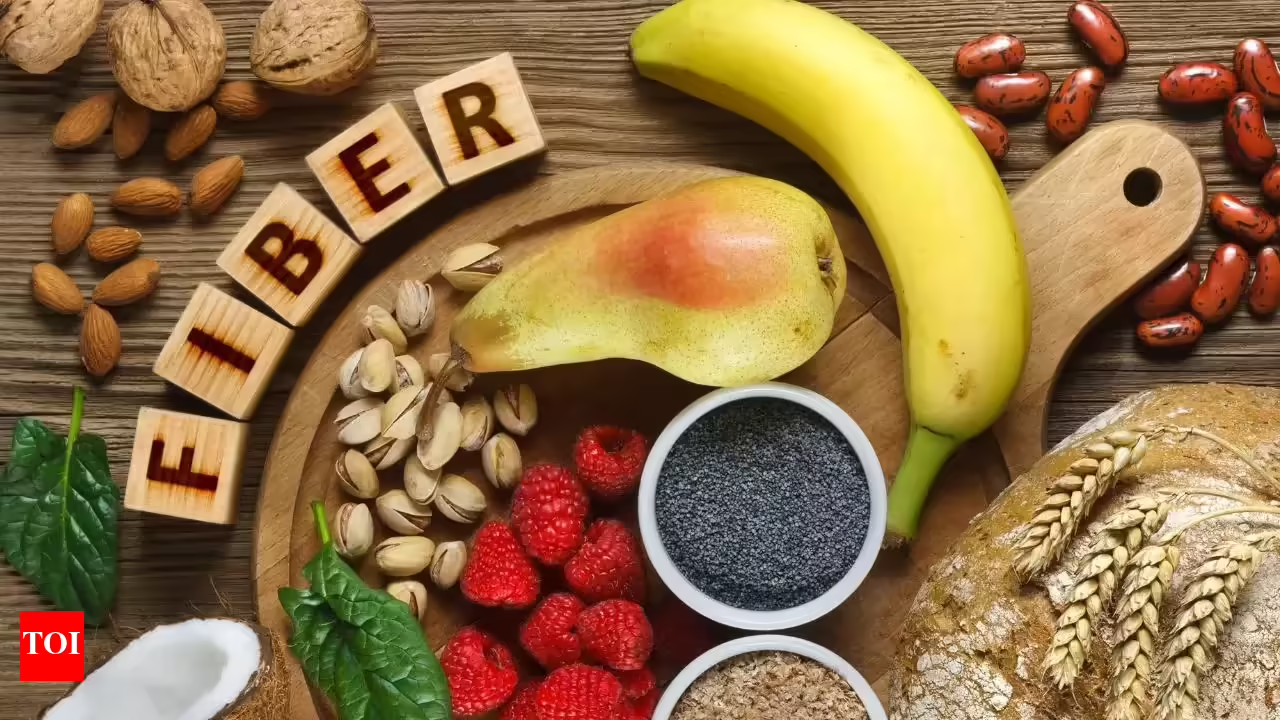Jump To
What are the Causes of Constipation?
Constipation refers to having fewer than three bowel movements per week or experiencing hard, dry, and difficult-to-pass stools. You may also feel like you haven’t completely emptied your bowels. It can happen due to a variety of reasons, like;
- Dehydration
- Lack of dietary fibre
- Sedentary lifestyle
- Certain medications
- Stress
- Lack of exercise
For many people, one of the easiest and most effective changes is improving fiber intake, especially from fruits that help with constipation naturally.
Below, we’ll explore the top 10 fruits that ease constipation, support your gut, and keep things moving—without relying on harsh laxatives.
1. Prunes
When it comes to fruits that cure constipation, prunes are often the first that come to mind, and for good reason. Prunes are not only packed with dietary fiber, but they also contain sorbitol, a natural sugar alcohol that draws water into the intestines and helps soften stool. They’re a staple in any high-residue diet and an effective option when dealing with severe constipation.
2. Pears
Pears are among the best fruits for constipation relief because they’re high in soluble fiber and water content. Just one medium pear with the skin provides around 5–6 grams of fiber. Pears help increase stool bulk and promote regularity without being too harsh on the stomach, making them a great option for those seeking fruits that can help relieve constipation naturally.
3. Apples
An apple a day might do more than keep the doctor away, it can help your bowels too. Apples contain a type of soluble fiber called pectin, which acts like a gentle bulk-forming laxative. Apples are great when you want good fiber for constipation, and they’re also super easy to add to your daily meals or snacks.
4. Kiwi
Kiwis are often underrated, but they’re powerful when it comes to fruits that help relieve constipation. Each kiwi is loaded with both insoluble and soluble fiber, and research shows that just two a day can significantly improve stool consistency and frequency. Plus, they’re easy to digest and gentle enough for sensitive stomachs.
5. Figs
Fresh or dried, figs are excellent fruits for constipation relief. They’re rich in both fiber and natural sugars, which can help move stool through the colon more easily. Figs have long been used in natural medicine as fruits which help in constipation, and they’re also a delicious addition to breakfast bowls, salads, or smoothies.
6. Berries
Raspberries, blackberries, and strawberries are not only rich in antioxidants but also among the best fiber fruits for constipation relief. A cup of raspberries, for example, contains about 8 grams of fiber. Berries are excellent for those who want to incorporate fruits in constipation management while also getting a burst of natural sweetness.
7. Oranges
Oranges are packed with water and vitamin C, and they offer a type of fiber called cellulose, which adds bulk to your stool. Oranges are one of the top fruits that ease constipation, especially for people who prefer juicy, refreshing options. Plus, the natural sugar and acidity can also gently stimulate digestion.
8. Papaya
Papaya contains papain, a digestive enzyme that helps break down food and promote smoother digestion. It’s also a source of soluble and insoluble fiber, making it an ideal fruit in constipation relief. Many people dealing with chronic constipation find that papaya supports regularity in a soothing and natural way.
9. Bananas
Ripe bananas are soft, easy to digest, and full of fiber that supports gut movement. While under-ripe bananas may sometimes worsen constipation, a fully ripe banana can help relieve it by providing the right balance of soluble fiber. For constipation relief, fruits like bananas can be especially helpful for children, the elderly, or anyone needing a mild option.
10. Avocados
Though often thought of as a vegetable, avocados are technically a fruit, and one of the best high fiber foods for constipation. They offer about 10 grams of fiber per cup and are loaded with healthy fats, which help lubricate the intestines and ease stool passage. Avocados fit perfectly into a high residue diet focused on gut health.
Read More: Top 10 Natural Ways to Help Constipation Using Gentle Laxatives That Actually Work
Why Fiber Helps with Constipation
You might be wondering, “Fiber—what is fiber, really?” Simply put, fiber is the part of plant foods that the body can’t digest. There are two types: soluble fiber, which absorbs water and forms a gel-like consistency, and insoluble fiber, which adds bulk and helps food pass more quickly through the stomach and intestines. Both are important when it comes to managing constipation with fiber. Fruits that aid constipation usually contain a healthy mix of both types.
If you’re regularly experiencing high constipation, adding these fruits into your diet can help create a natural rhythm for your digestive system. It’s a simple and delicious way to improve gut health without overthinking it.

